“Deck three, ma’am,” the man replied, as he jerked a thumb upwards. “A ladder is located just aft of here.”
As she made her way toward the Mississippi ’s stern, Mac saw that the “ladder” was actually a set of stairs. For some reason, the navy felt compelled to rename common items. She led Atkins up to deck three and through a varnished doorway. A private was there to receive her. “Name please?”
“Macintyre.”
He consulted a clipboard. “Yes, ma’am. We are expecting you. Please take a number.”
There was a dispenser on the table next to him. The kind normally seen in a bakery, or the Department of Motor Vehicles. The current number was seventy-nine. Mac frowned. “You’re joking.”
“No, ma’am. Except in the case of emergencies, the colonel sees people in the order they arrived. He says that keeps the process fair, and rewards promptness. Please have a seat.”
As Mac entered the waiting area, she saw four civilians, two army captains, and an air force lieutenant. There were empty chairs next to the zoomie, so Mac sat in one and Atkins took the other. The lieutenant smiled. He had blue eyes and a boyish face. “Good afternoon, Major, and welcome to Colonel Russell’s navy. Michael Hicks at your service.”
“Robin Macintyre. You’re a pilot.”
“Sometimes, yes. But I’m serving as a combat-control specialist at the moment. When the colonel wants the rain, it’s my job to bring it.”
“So we’re going to get shot at?”
Hicks grinned. “Oh, yeah… From both sides of the river and on a frequent basis.”
Mac was going to interrogate Hicks further when a male voice called the number 73. Hicks stood. “Wish me well, Major… The colonel beckons.” And with that, he was gone.
Nearly thirty minutes passed before Mac’s number was called, and a private ushered her into Russell’s office. The officer was seated behind an oak table with his back to a large window. Mac could see the pusher boat and the barges beyond. She came to attention and popped a salute. “Major Macintyre, sir… Reporting as ordered.”
Russell returned the salute and gestured toward one of two guest chairs. Both were made of oak, lacked any sort of padding, and had straight backs. Like a restaurant that wants to move customers through. “Welcome aboard,” Russell said. “Have a seat.”
As Mac sat down, she saw the sign on Russell’s desk. It was made of brass and turned her way. The inscription read: BE BRIGHT, BE BRIEF, AND BE GONE.
The tools of Russell’s trade were laid out like instruments on a tray. Mac saw a pen, a mechanical pencil, a complicated calculator, a protractor, and a rectangular magnifying glass all positioned with the precision of soldiers on parade. The rest of the table was bare except for an in-box/out-box combo to her right. The out-box was full to overflowing.
Russell’s eyes locked with hers. He had thinning hair, gray eyes, and a straight nose. “You arrived in New Madrid twenty-six minutes early and immediately went to work settling in. I like promptness, Major. And I like efficiency. So based on what I’ve seen so far, you and I are going to get along. How much do you know about Flotilla 4 and its mission?”
“Very little, sir.”
Russell nodded, as if that was to be expected. “As the Union Army pushed south across the New Mason-Dixon Line, and the rebs were forced to retreat, they began to blow bridges along the Mississippi. Not all of them, mind you… because they had an ongoing need to move troops and supplies east and west. But they dropped enough spans to block the river and slow us down. We had no way to respond at first.”
Russell made a steeple with his fingers. “But,” he added, “things have changed. Something big must be afoot at Fort Knox because we have orders to head south and clear obstructions. The kinds of obstructions that would impede barge traffic.
“I’ve been working on this river for seven years, so trust me when I say that ours would be a difficult task under normal circumstances. But now, with people shooting at us, the job will be even more challenging.
“Each time we pause to clear underwater wreckage, it’s likely that the enemy will attack. To counter that threat, you and your battalion will go ashore and provide the flotilla with security. Do you have any questions?”
Mac had plenty of questions but, in light of the sign on Russell’s desk, forced herself to focus. “Not about the basic mission, no. But I have twenty Strykers and more than two hundred troops. How do you plan to accommodate them?”
Russell hooked a thumb back over a shoulder. “See the pusher boat? And the barges in front of it? Your Strykers will be loaded onto the barges. As for the troops, most of them will be billeted on the Mississippi , where, I might add, a cabin has been assigned to you. Is there anything else?”
“My officers and I appreciate the preparations that were made for us,” Mac said. “But we need water.”
“I think you’ll find that a water tanker is in place when you return,” Russell told her. “There’s no need for anything more permanent since I expect all of your vehicles and personnel to be aboard the barges by this time tomorrow. We’re scheduled to depart at 0600 the following morning.”
Atkins was waiting when Mac left the office, and they returned to the unit together. After some quality time with Russell, Mac wasn’t surprised to discover that a water tanker had arrived during her absence. It was parked between two supply trucks. What was she supposed to do with them ? There were lots of details to take care of and no procedures to work from.
Mac worked until 2200 hours that night, slipped into her sack, and awoke seven hours later. The sun was little more than a pus-colored smear behind a screen of gray clouds as Mac entered a temporary enclosure and suffered through a cold shower before getting dressed. Breakfast consisted of an MRE Sloppy Joe and a cup of coffee.
Then it was time to head down to the river and get things rolling. It took the better part of twenty minutes to find the pusher boat’s captain, and when she did, he was sitting in the Mississippi ’s well-appointed dining room feasting on free food. His name was Foley. And he was dressed in a ball cap and dirty khakis. “My name’s Macintyre,” Mac told him, as she took the seat across from him. “Your crew is supposed to load my Strykers this morning.”
Foley eyed her over a forkful of hash browns. He had beady eyes and purplish lips. “I have a contract with the government,” he said. “And according to the terms of that contract, we begin work at nine. So, when nine o’clock rolls around, we’ll load your vehicles.”
Mac frowned. “What are you going to do when we’re downriver, and the rebs attack before nine o’clock?”
Two rows of yellow stumps appeared when Foley smiled. “I’ll do whatever I’m told… But it will cost the government time and a half. Now go find someone else to bother.”
Mac was seething as she returned to the unit. Thanks to Quick’s leadership, Mac’s Marauders were packed and ready to go. The first Stryker in line was called the IRON LADY, and Mac rode her down to the river.
It was 0837 by then, and Mac could see the crane operators standing on Barge 1 shooting the shit. But, in keeping with Foley’s contract, she forced herself to wait until 0900 before crossing the gangplank and stepping onto the barge. Mac could tell that Foley had warned the men about her because both of them had shit-eating grins. “Good morning, gentlemen… We’re ready to load. How should we proceed?”
The next fifteen minutes were spent discussing how the Strykers would be positioned ashore, who would attach the slings, and how to secure the vics once they were hoisted aboard.
Читать дальше
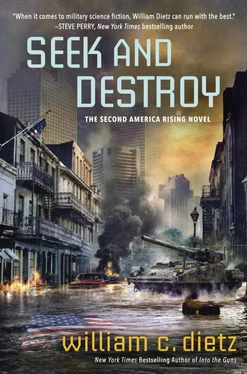
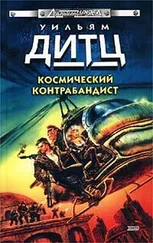
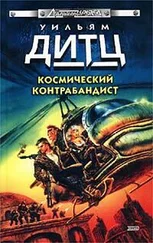
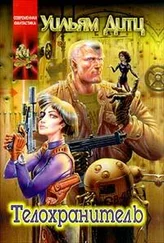
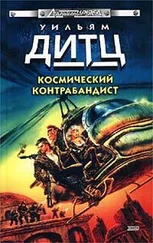
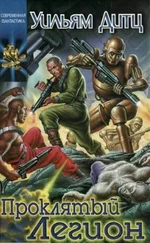
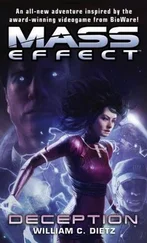


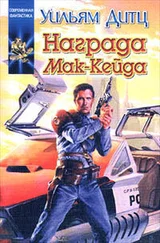
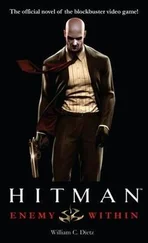
![Уильям Дитц - Избранные произведения в одном томе [Компиляция]](/books/389750/uilyam-ditc-izbrannye-proizvedeniya-v-odnom-tome-k-thumb.webp)
